A “really ordinary person from Australia” attempts to become famous in Japan and is making a film about it.
gaijin
Even when they’re at their cringiest, do Japanese people give hardcore Japanophiles a free pass?
Weeaboos often get a bad rap for being out of touch with reality and over-idealising Japan. But what do ordinary Japanese people think of them?
What do ordinary Japanese people think of a viral video which depicts a situation wherein a Japanese person is unable to process foreigners’ fluent Japanese?
Here are five awkward, bittersweet moments that’ll make you realise you’ve finally become a seasoned expat…
A while back, we had some fun talking about five of the more noteworthy types of foreigners you’ll meet in Japan, based upon observations drawn from our time spent working and living here in the Land of the Rising Sun. Whether you’re a Plastic Sensei, Hateimus Japanicus, Secret Ninja, Bubble Dweller or Kid in a Candy Store (or indeed, all of these at different times), we reckon there’s probably quite a lot foreign residents can find to nod their heads at when considering each of those five extreme types.
But what about the flip side of the coin? Spend enough time as a foreigner in a country like Japan—a place that’s 98.5% ethnically Japanese—and you’ll be sure to notice that Japanese people will approach you, the foreigner, in a number of different ways. Today we’d like to share our thoughts on six kinds of Japanese people foreigners might meet during their time in Japan. See how many of them you’ve come across during your time traveling or living in the country!
Japan attracts all kinds of people from all over the world. Some come to work, others come to play, and thanks to its relatively low crime levels, high standard of living and abundance of delicious food, Japan is a very easy place to call home for a while. Plus, isn’t Japan where all those anime, video games and ninjas come from? It’s got to be worth a visit!
But today, instead of talking about the myriad things Japan has to offer visitors, we’re going to have a bit of fun by taking a closer look at some of the visitors themselves. You might not encounter each of these five types of people if you’re staying in Japan for just a couple of weeks, but if you’re here for work or an extended sojourn, then you’re bound to meet at least a couple of them along the way…
I come before you today, readers of RocketNews24, with a confession. What I am about to tell you may shock you, but it’s eating away at me and I need to get it off my chest. You see, yesterday afternoon on my way to lunch, I did a fellow foreigner–a fellow gaijin, if you will–a tremendous injustice. It was not my intent to do so, but at the very moment this gentlemen, this benevolent stranger, put himself out there and sought to make a minor connection with another foreigner, I turned away.
That’s right, gentle reader, I accidentally ignored a Gaijin Nod.
Allow me to explain.
With all the controversy surrounding a recent “racist” All Nippon Airlines ad, the Japanese and Western media have both been abuzz with the question of whether foreign people can ever truly become respected Japanese citizens – accepted by their community and deemed worthy of the right to not be the recipient of extraordinary treatment.
But this conversation has been going on a long, long time in the expat community in Japan, with a lot of otherwise Japanophile foreigners finding it hard to befriend the Japanese on a higher-than-acquaintance level. Why? Well, frequent source of opinion and cultural commentary Madame Riri has compiled a few of the reasons:
Not a day goes by without Japanese school children hearing the terms globalization (グロバール化) or internationalization (国際化), and why it’s so important for their future careers. In fact, the whole country seems to be swept up in a fervor of these two words. But do Japanese people really understand the meanings of them, or are the terms just being used as catchphrases?
Enter Austin, an international student who has been living in Japan since 2012. Last week he posted a thought-provoking piece called “Some Thoughts – And Doubts – About Japan’s Internationalization” on Tofugu, a Japanese language and culture blog. The piece has circulated around the Internet, and was even picked up and summarized in Japanese by popular Japanese blogger Madame Riri. In it, Austin addresses how while Japan may be making efforts to globalize on the surface, it still lacks something on a deeper level that is preventing it from becoming truly internationalized. Join the debate after we take look at some of his thoughts below.
Earlier this week, website Netallica posted an interesting little article entitled “The Things That Foreigners in Japan Hate to Hear” for its predominantly Japanese readership. Naturally, classics like “wow, you’re so good at Japanese”, and “you’re very good with chopsticks” were flagged as the main offenders, which I’m sure many gaijin (a term I use intentionally and will come back to later) will no doubt empathise with and would be happy to hear a little less frequently, but overall there were few phrases that could not be reasonably perceived as stemming from either the speaker’s genuine desire to compliment the listener or simple naivety.
It’s difficult to broach this topic- especially as a cynical Brit who loves a good grumble- without it quickly turning into a cliché-ridden compendium of gripes about life in Japan as a foreigner or an ill-advised rant about how comments of this nature are, in fact, some kind of backhanded attempt to draw a line between foreigners and Japanese; and goodness knows there are plenty of those out there.
There are, nevertheless, a number of phrases that foreigners living in Japan have heard a thousand times and would definitely prefer Japanese people knew aren’t always received in the way that they are probably intended…

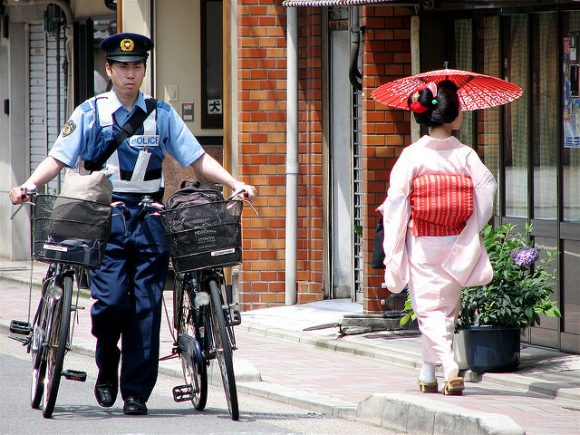

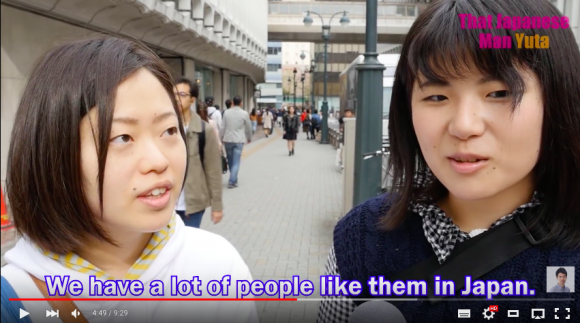
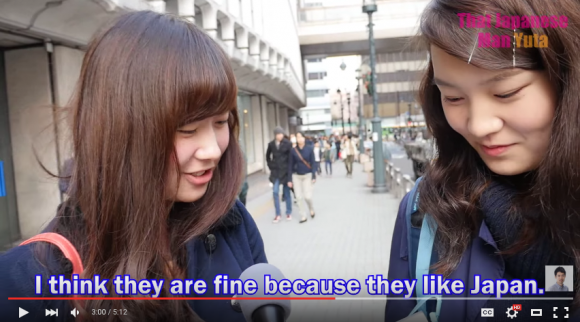
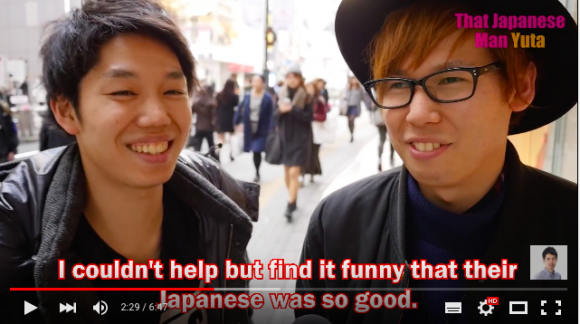
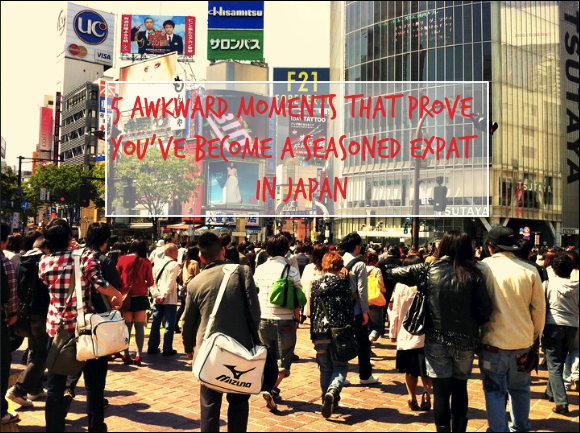
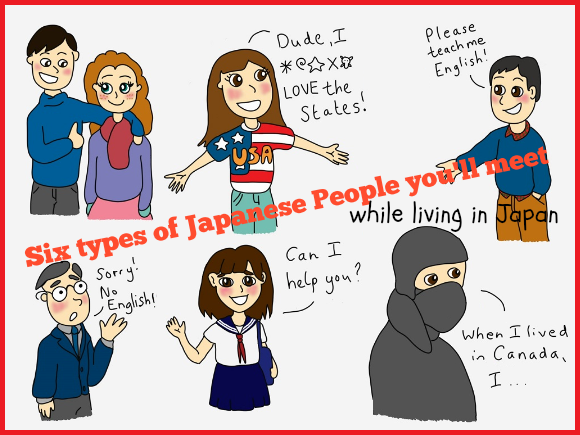
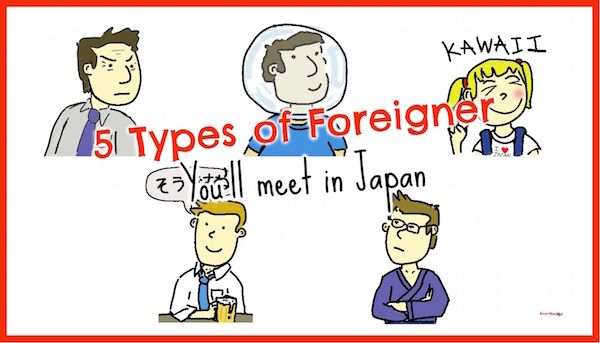


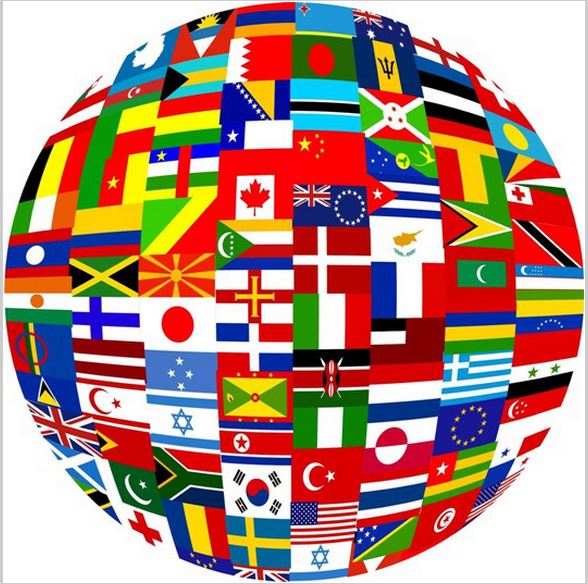
 How to order snacks on a Shinkansen bullet train in Japan
How to order snacks on a Shinkansen bullet train in Japan Demon Slayer: Kimetsu no Yaiba gets new roller coaster attractions and food at Universal Studios Japan
Demon Slayer: Kimetsu no Yaiba gets new roller coaster attractions and food at Universal Studios Japan Hello, cosmetics! Clinique teams up with Hello Kitty this summer for first-time collaboration
Hello, cosmetics! Clinique teams up with Hello Kitty this summer for first-time collaboration Japan’s new difficult-to-drink-from beer glass protects your liver, but it’s a brutal experience
Japan’s new difficult-to-drink-from beer glass protects your liver, but it’s a brutal experience Nintendo history you can feel – Super NES, N64, and GameCube controllers become capsule toys
Nintendo history you can feel – Super NES, N64, and GameCube controllers become capsule toys Burger King Japan suddenly adds Dr. Pepper and Dr. Pepper floats to its menu nationwide
Burger King Japan suddenly adds Dr. Pepper and Dr. Pepper floats to its menu nationwide Princesses, fruits, and blacksmiths: Study reveals the 30 most unusual family names in Japan
Princesses, fruits, and blacksmiths: Study reveals the 30 most unusual family names in Japan New Nintendo Lego kit is a beautiful piece of moving pixel art of Mario and Yoshi【Photos】
New Nintendo Lego kit is a beautiful piece of moving pixel art of Mario and Yoshi【Photos】 Japan’s foreign population reaches historic milestone following largest-ever single-year surge
Japan’s foreign population reaches historic milestone following largest-ever single-year surge We check out the local flavors of the commonly confused Ome and Aomi areas of Tokyo in one day
We check out the local flavors of the commonly confused Ome and Aomi areas of Tokyo in one day “The most Delicious Cup Noodle in history” – Japan’s French Cup Noodle wins our heart【Taste test】
“The most Delicious Cup Noodle in history” – Japan’s French Cup Noodle wins our heart【Taste test】 Starbucks releases a cute Frappuccino and Unicorn Cake…but not in Japan
Starbucks releases a cute Frappuccino and Unicorn Cake…but not in Japan Kyoto Tower mascot termination reveals dark side behind cute Japanese characters
Kyoto Tower mascot termination reveals dark side behind cute Japanese characters McDonald’s Japan’s Soft Twist Tower: A phantom ice cream only sold at select branches
McDonald’s Japan’s Soft Twist Tower: A phantom ice cream only sold at select branches Yabai Ramen: What makes this Japanese ramen so dangerous?
Yabai Ramen: What makes this Japanese ramen so dangerous? Finally! Nintendo Japan expands Switch 8-bit controller sales to everybody, Online member or not
Finally! Nintendo Japan expands Switch 8-bit controller sales to everybody, Online member or not Japanese government wants to build luxury resorts in all national parks for foreign tourists
Japanese government wants to build luxury resorts in all national parks for foreign tourists To combat declining birth rate, Japan to begin offering “Breeding Visas” to foreigners
To combat declining birth rate, Japan to begin offering “Breeding Visas” to foreigners 10 things you should buy at 7-Eleven in Japan
10 things you should buy at 7-Eleven in Japan Studio Ghibli releases anime heroine cosplay dresses that are super comfy to wear
Studio Ghibli releases anime heroine cosplay dresses that are super comfy to wear Woman charged for driving suitcase without a license in Osaka
Woman charged for driving suitcase without a license in Osaka Studio Ghibli unveils My Neighbour Totoro miniature house model
Studio Ghibli unveils My Neighbour Totoro miniature house model Kyoto experiencing problems with foreign tourists not paying for bus fares, but not on purpose
Kyoto experiencing problems with foreign tourists not paying for bus fares, but not on purpose Fighting mild hunger with a Japanese soda that turns into jelly in the stomach【Taste test】
Fighting mild hunger with a Japanese soda that turns into jelly in the stomach【Taste test】 Studio Ghibli’s Howl’s Moving Castle tapestry unveiled in Japan for first time
Studio Ghibli’s Howl’s Moving Castle tapestry unveiled in Japan for first time McDonald’s new Happy Meals offer up cute and practical Sanrio lifestyle goods
McDonald’s new Happy Meals offer up cute and practical Sanrio lifestyle goods Sales of Japan’s most convenient train ticket/shopping payment cards suspended indefinitely
Sales of Japan’s most convenient train ticket/shopping payment cards suspended indefinitely Sold-out Studio Ghibli desktop humidifiers are back so Totoro can help you through the dry season
Sold-out Studio Ghibli desktop humidifiers are back so Totoro can help you through the dry season Japanese government to make first change to romanization spelling rules since the 1950s
Japanese government to make first change to romanization spelling rules since the 1950s Foreigner’s request for help in Tokyo makes us sad for the state of society
Foreigner’s request for help in Tokyo makes us sad for the state of society Ghibli founders Toshio Suzuki and Hayao Miyazaki contribute to Japanese whisky Totoro label design
Ghibli founders Toshio Suzuki and Hayao Miyazaki contribute to Japanese whisky Totoro label design Doraemon found buried at sea as scene from 1993 anime becomes real life【Photos】
Doraemon found buried at sea as scene from 1993 anime becomes real life【Photos】 Tokyo’s most famous Starbucks is closed
Tokyo’s most famous Starbucks is closed Burger King Japan suddenly adds Dr. Pepper and Dr. Pepper floats to its menu nationwide
Burger King Japan suddenly adds Dr. Pepper and Dr. Pepper floats to its menu nationwide Princesses, fruits, and blacksmiths: Study reveals the 30 most unusual family names in Japan
Princesses, fruits, and blacksmiths: Study reveals the 30 most unusual family names in Japan New Nintendo Lego kit is a beautiful piece of moving pixel art of Mario and Yoshi【Photos】
New Nintendo Lego kit is a beautiful piece of moving pixel art of Mario and Yoshi【Photos】 Japan’s foreign population reaches historic milestone following largest-ever single-year surge
Japan’s foreign population reaches historic milestone following largest-ever single-year surge We check out the local flavors of the commonly confused Ome and Aomi areas of Tokyo in one day
We check out the local flavors of the commonly confused Ome and Aomi areas of Tokyo in one day We order an amazing Vegeta battle armor suit and dash down the street to celebrate Saiyan Day
We order an amazing Vegeta battle armor suit and dash down the street to celebrate Saiyan Day New samurai glasses are Japan’s latest weird must-have souvenir
New samurai glasses are Japan’s latest weird must-have souvenir Kyoto Tower mascot termination reveals dark side behind cute Japanese characters
Kyoto Tower mascot termination reveals dark side behind cute Japanese characters Survey finds more than half of Japanese women’s nieces don’t call them “aunt”
Survey finds more than half of Japanese women’s nieces don’t call them “aunt” Finally! Nintendo Japan expands Switch 8-bit controller sales to everybody, Online member or not
Finally! Nintendo Japan expands Switch 8-bit controller sales to everybody, Online member or not Genuine Muramasa blade and Muromachi katana on display at Tokyo’s Touken Ranbu store【Photos】
Genuine Muramasa blade and Muromachi katana on display at Tokyo’s Touken Ranbu store【Photos】 KFC Japan releases official Kentucky Fried ramen recipe, other Japanese-inspired cooking ideas
KFC Japan releases official Kentucky Fried ramen recipe, other Japanese-inspired cooking ideas Live-streamer who slipped and died on Mt Fuji wins Darwin Award
Live-streamer who slipped and died on Mt Fuji wins Darwin Award